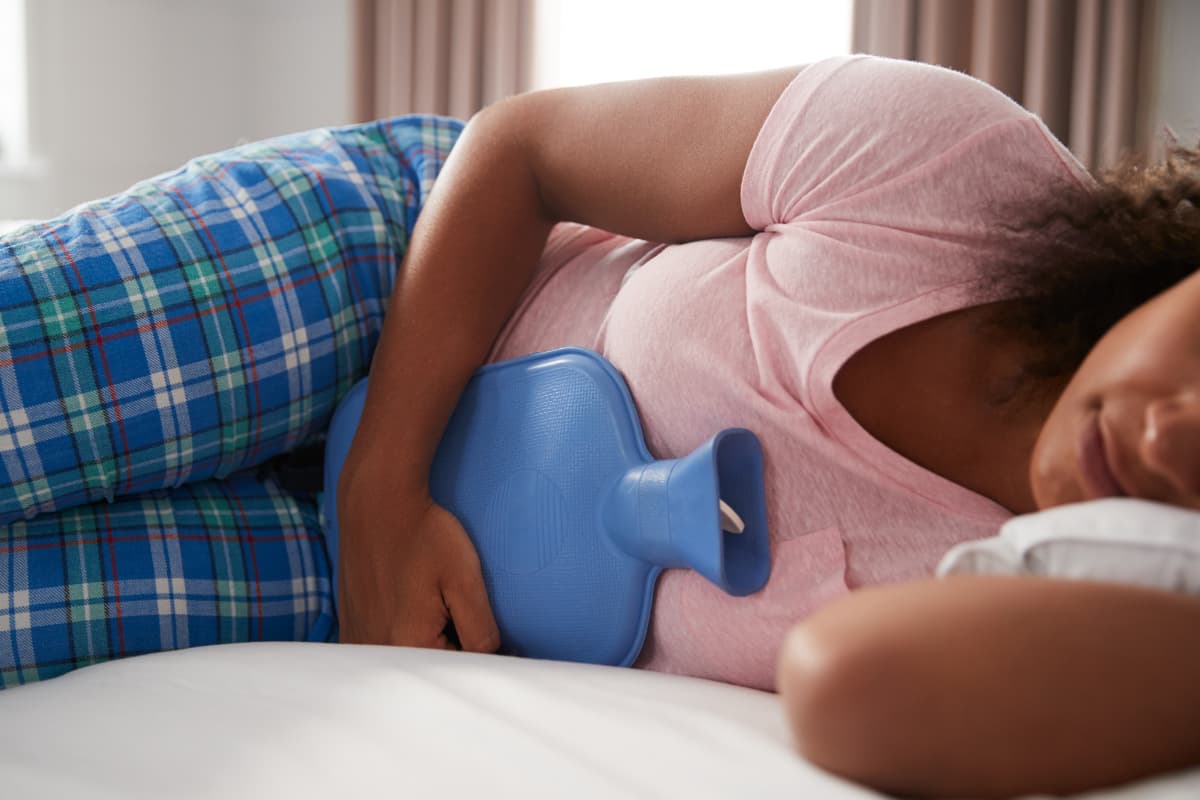What Are the Three Stages of Menopause?

Menopause is a complex life stage that spans many years. About a third of your life, in fact. While we often use the word “menopause” as a blanket term when talking about symptoms and the overall experience, menopause has three distinct stages: perimenopause, menopause, and postmenopause. Each stage brings different changes to your body and challenges, from hot flashes to cardiovascular risks. Understanding what’s to come at each stage and the treatments and preventative measures you can take will help ensure a smooth transition and instill a feeling of confidence. Knowledge and having a positive, confident attitude toward menopause can make all the difference.
Perimenopause

Perimenopause usually begins in your early 40’s, but possibly earlier for some. There is a great deal of variation in the timing and length of perimenopause from person to person. It can last between two and ten years, with the average being about four years.
Your healthcare clinician may tell you that perimenopause doesn’t start until your periods are irregular. However, more recent research has shown that women may experience a multitude of symptoms, from sleep disturbance to hot flashes, before any changes in their menstrual cycle occur.
You may notice more intense PMS than usual as your body works hard to ovulate while your hormones are out of balance. You might not know if and when you’re ovulating during perimenopause. Some women experience spotting between periods, and periods will get more and more irregular. This can make it difficult to predict if you are ovulating or not. It is possible to get pregnant during perimenopause, and you are at higher risk for complications if you do. If pregnancy is not your desired outcome, take precautions to prevent it until you’ve officially reached menopause.
Feeling moody during perimenopause is common. This is a time marked by intense fluctuations in hormone levels, and many women feel irritable or even anxious and depressed because of these imbalances. If you’re also not sleeping well, mood swings like irritability and sadness might be even worse.
Some people start noticing vaginal dryness during perimenopause. This can make sex uncomfortable and even painful and leave you vulnerable to developing vaginal and urinary tract infections.
Hot flashes might begin in mid to late perimenopause as your estrogen levels drop. Hot flashes cause a sudden feeling of intense heat, flushing, and sweating. They usually last from 1 to 5 minutes. Hot flashes at night are called night sweats, and they have the potential to severely interrupt your sleep.
Hot flashes aren’t the only reason your sleep quality might decrease during perimenopause. Research suggests that an increase in follicle stimulating hormone (FSH) caused by perimenopause plays a part in sleep disturbances. Also, sleep cycles naturally change as we age.
Perimenopause is the perfect time to start discussions with your care provider about how you want to manage the menopause transition. Symptoms of perimenopause can be managed. Holistic lifestyle options, including diet, exercise, sleep hygiene, meditation, and mindfulness programs, can support you and ease symptoms. Prescription therapies might also be an option. Anti-anxiety or antidepressant medication can help if mood changes become a concern.
Menopause

Natural menopause begins the moment you’ve gone 12 months in a row without a period. Medical or surgical menopause starts suddenly when you have your ovaries and/or uterus surgically removed or enter menopause due to certain cancer treatments.
The average age of menopause is 51, but, again, there are great variations in the timing of this milestone. Some people enter menopause prematurely (before age 40) or early (before age 45.)
Once you reach menopause, your hormone levels stop their dramatic ups and downs, and you eventually reach a stable hormonal baseline. This can help lessen the irritability and moodiness many people experience during perimenopause.
The low estrogen of menopause brings with it many unwanted symptoms. One is weight gain, especially around the stomach, also known to women as “belly fat.” This can be stubborn fat that doesn’t respond easily to exercise or diet. It’s possible that there may be some benefits to ensuring adequate intake of vitamin D and eating a Mediterranean diet. Managing your weight before starting perimenopause and keeping physically active throughout the menopause transition will help minimize weight gain.
Sexual side effects might intensify once you reach menopause. Low estrogen disrupts vaginal lubrication, and sexual desire and the ability to reach orgasm can be muted. Vaginal estrogen is an effective low-dose hormonal treatment for maintaining the integrity of the vaginal walls and improving vaginal lubrication. If you don’t want or can’t have hormonal interventions, a simple water-based lubricant can also be a great help.
Once you’ve reached menopause, it’s important to be mindful of your heart and bone health. Cardiovascular disease and osteoporosis thrive in a low estrogen environment. Aerobic and weight-bearing exercise, excellent nutrition, and regular medical checkups can help you stay healthy in menopause.
MHT works well to protect against some of the symptoms associated with menopause. Not everyone can take MHT, however. Diet and exercise help with weight gain, energy, sleep, and bone and heart health. Talk to your doctor about non-hormonal treatments available for menopause symptoms, as there are many options available.
Postmenopause

Postmenopause is the rest of your life after you’ve reached menopause. There’s no more risk of pregnancy, and your hormones stabilize at their new lower levels.
Over time some of the symptoms you’ve been experiencing will start to fade and may eventually stop. However, the longer you live with low estrogen, the higher your risk for cardiovascular disease and osteoporosis. It is important to regularly engage in heart and bone-healthy activities, including regular exercise, quitting smoking, and eating a nutrition-dense diet.
It was once thought that hot flashes would desist within six months to two years after menopause, but current research suggests they can linger for much longer. Eventually, hot flashes will ease up and peter out, and your body will adapt to its new normal. If hot flashes are bothersome, consider menopausal hormone therapy (MHT) or other prescription options. Talk to your healthcare provider about treatment options. You can also learn whether hormone therapy may be right for you using the Midday app.
The sexual side effects associated with low estrogen, such as vaginal dryness, are here to stay. Get communicative and creative with your sexual partner to figure out what works for you in the bedroom. Talk to your healthcare provider, too, about the possibility of using low-dose vaginal estrogen or other treatments to help make sex more comfortable for you.
Thrive Throughout Menopause
The three stages of menopause all bring unique changes to your body and your life. The process can be tedious and frustrating at times, but you can regain control over your physical and emotional health with knowledge and support and thrive in midlife. Learn more about how the three stages of menopause can affect you with our menopause app.
Jennifer Turkyilmaz, RN, BSN, is a medical writer who worked for many years in women’s health as a high-risk pregnancy nurse. She is also a newly menopausal woman who wishes she had known more about what to expect before it happened to her.
Sign up for more unique women’s health content
By submitting this form, you agree to the Lisa Health Privacy Policy and Terms of Use


